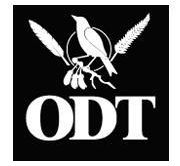Poynter’s Mallary Jean Tenore highlighted the “difficult questions for journalists” prompted by a Florida woman’s tweets reporting her own rape.
The U.S. Society of Professional Journalists’ code of ethics calls for journalists to respect the privacy of and be sensitive to victims of crimes. In recent months, journalists have debated privacy and naming victims in the high-profile Arnold Schwarzenegger affair and the high-profile alleged sexual assault by Dominique Strauss-Kahn.
But, as Tenore noted, how do journalists handle reporting on the crime if the alleged victim in the case has publicly reported the crime? Tenore reported that a Tampa police spokesperson asked the woman victim to “stop tweeting about the crime shortly thereafter out of concern that the tweets could interfere with the investigation.”
Tenore created a brief list of “things to keep in mind” when reporting on victims and social media, including that “just because a victim posts information to a social network does not necessarily imply she is consenting for that information to be used beyond her circle of friends or followers.” As evidence, Tenore cited Harvard law professor Danah Boyd’s comments last year that “There’s a big difference between something being publicly available and being publicized.”
Also, Tenore recommended journalists weigh the social media information’s newsworthiness and more. Read more here.
Poynter also published an explanatory post June 6 outlining why Poynter identified the alleged rape victim by her Twitter handle. See that here.





